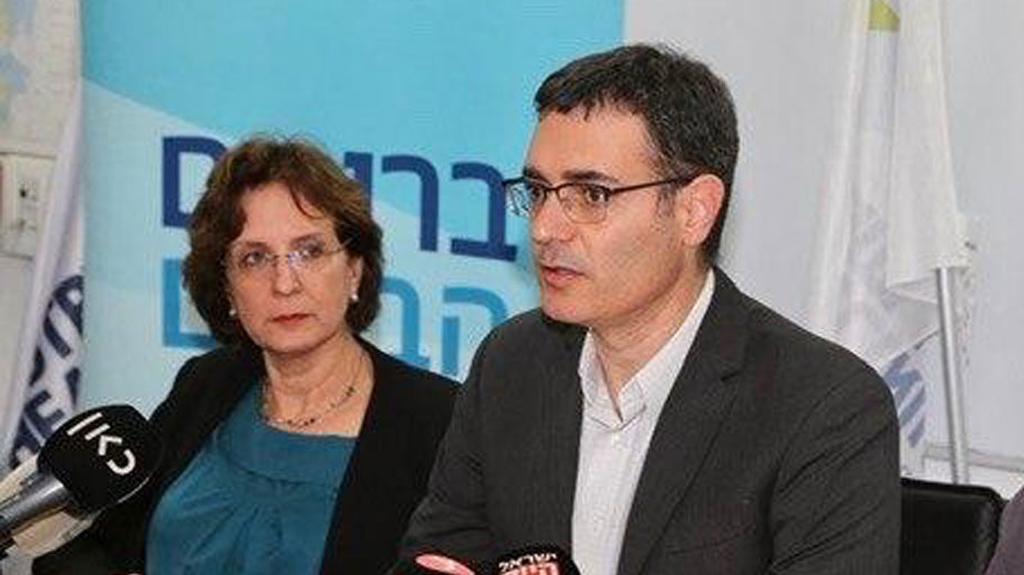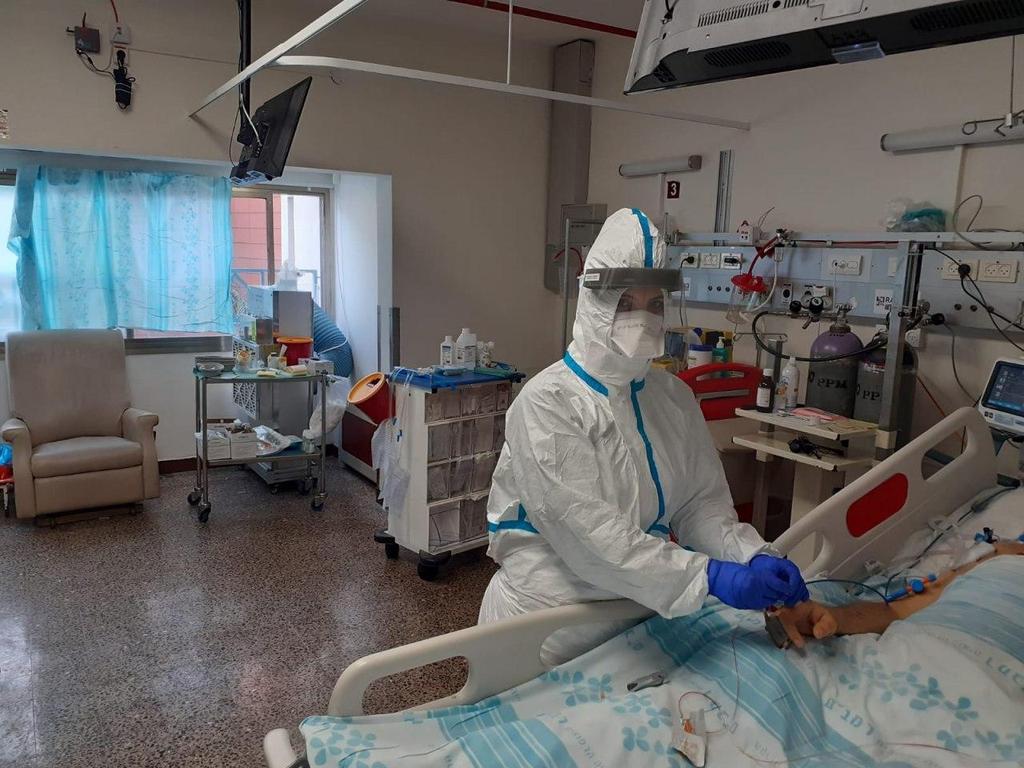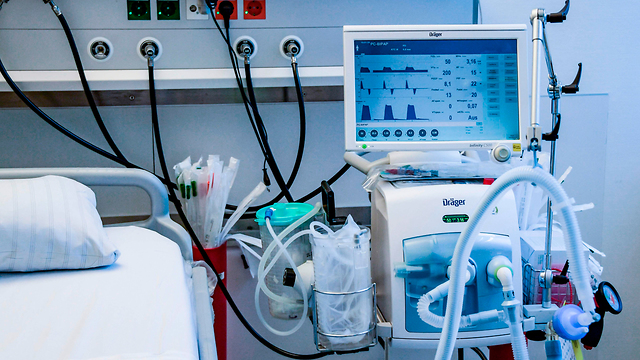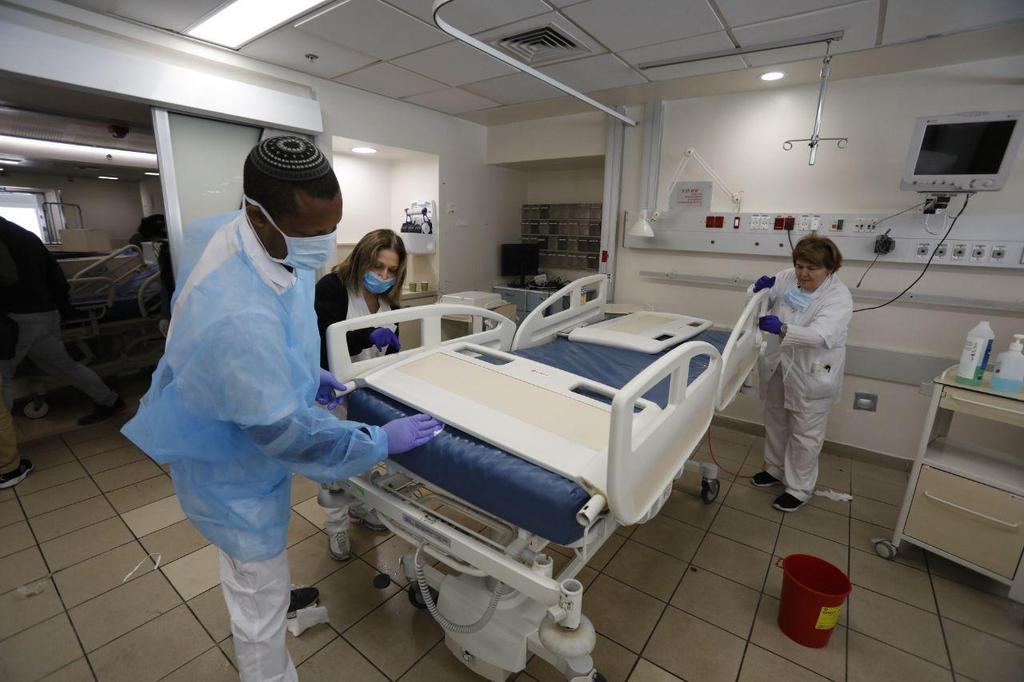Among the Health Ministry’s extensive list of failures in dealing with the coronavirus crisis, it seems there is one that is most egregious.
For despite the reports from China that those in critical condition require prolonged and extensive respiratory assistance, the Health Ministry has not even done the bare minimum to acquire the main resource needed to treat our own patients - ventilators.
It’s not only that these live-saving machines weren’t ordered soon enough, before they became the world’s first most sought-after piece of medical equipment, it's the fact that the Health Ministry did not even know how many machines were available in Israel to begin with. Without them, it is impossible to manage the crisis we are now facing.
The first reports of a potential ventilator shortage in hospitals first arose at the start of March.
4 View gallery


Top Health Ministry officials Dr. Vered Ezra and Moshe Bar-Siman-Tov
(Photo: Yariv Katz )
In a conversation I had at around this time with Dr. Vered Ezra, the head of Medical Management of the Health Ministry, she tried to convey a message of reassurance to the public, saying there were approximately 3,000 ventilators in the hospitals around the country, with 70% of them being used extensively.
Another 400 ventilators were in storage in case of an emergency and an additional 1,000 had been ordered and were expected to arrive.
“We have enough machines for the coming months,” promised Ezra. “We will not experience a shortage.”
On Thursday though, the real numbers were revealed to a Knesset committee by Health Ministry Director-General Moshe Bar-Siman-Tov.
“We have approximately 1,500 machines ready for use,” said Bar-Siman-Tov.
“There are additional machines we have taken from the army, and 70 more in the private sector. All in all, we will have 2,864 ventilators at our disposal for the time being.”
Later Thursday, the Health Ministry released a statement affirming the numbers given by Bar-Siman-Tov: There are currently 2,864 ventilators available, including those belonging to the IDF.
In a daily briefing given to journalists on Sunday, a “moderate” scenario was reported as likely, in which some 5,000 patients required respiratory aid.
Suddenly, Dr. Ezra sounded more reserved.
Indeed, she said, "there is a disparity in the numbers, which is due in part to an incorrect count as well as to the fact that some machines we thought could be used to help coronavirus patients cannot actually do so."
“We have recalculated the numbers, and tuned our target numbers, including procurement targets,” she said.
But it is not only ventilators that are in short supply in Israel, there is also a shortage of anesthesia and vital equipment for administering intravenous drugs is likely to be lacking in the near future.
These too are being procured, Ezra promised.
According to the Health Ministry director-general, Israel started its preparations for a coronavirus outbreak on January 20, well before it expected to deal with a wave of patients who require critical respiratory aid.
So the question have to be asked: Given that we are just two days away from April, if all of the above are still in the process of being procured, what exactly has the ministry been doing for the Past two and half months?




